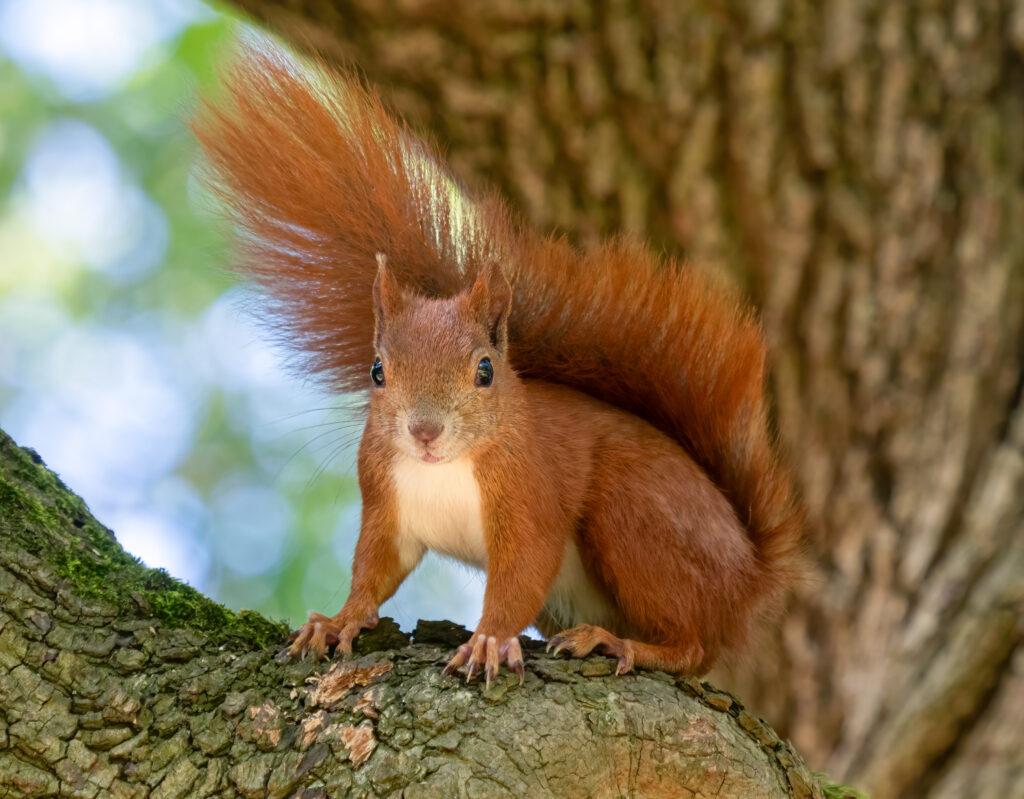Squirrel’s lifespan: Squirrels are gentle, sensitive animals. They can be seen adapting to both urban and rural environments. Squirrels are small mammals that are found in different species on all continents. They usually have a relatively short lifespan in the natural environment. In fact, their survival depends on the natural environment and care. If they are within reach of humans, their lifespan increases. Predators in the wild usually have a shorter lifespan due to weather and lack of food. Therefore, the difference in the survival of squirrels in the forest and in captivity can be observed. Again, if you do not create a shortage of food in the cage or within their reach, they can live for a long time.

Squirrel Lifespan: Wild Environment vs. Captivity
Squirrel’s lifespan depends on atmosphere and other facts. Basically squirrel belonging to the Sciuridae family, which has more than 200 species in the world. They usually love to climb tree branches. They usually like to eat grains or nuts. That is why they climb trees to collect food. The body color of these types of squirrels is usually gray or red. They have the ability to adapt to any environment. Since they are very intelligent, they can escape at any time in danger. They can also store food before it is needed. To adapt to adverse environments, they like to build nests or burrows in trees.
Squirrel’s lifespan in the natural environment can usually be 6 to 12 years, but it is not the same for all species. However, in this case, squirrel’s lifespan varies from species to species. For example, gray squirrels can usually live up to seven to eight years. Because their intelligence and ability to adapt to the environment are very strong. On the other hand, red squirrels can live for fewer years than gray squirrels. Red squirrels live for five to six years. On the other hand, ground squirrelsthat live on the ground live the shortest number of years. Gray squirrel’s lifespan increased to 15 to 20 years if they are with humans. This is because they gain the ability to live for a long time with human care and companionship. Similarly, if they are not in the forest, the life span of red squirrels increases even more in captivity. And ground squirrels can live up to 8 to 10 years if they are in a cage. Gray squirrels can live up to 15-20 years in captivity. Again, there are some species of squirrels that we know as tree squirrels, since they sense danger and take shelter in safe places, their survival time is long.
However, it should also be remembered that since squirrels live independently in the forest when they are not in captivity, they have a strong tendency to be attacked by predators. Therefore, squirrels living in the forest are very easily killed by birds of prey or snakes. Therefore, it can be said that in this case too, their squirrel’s lifespan is reduced according to statistics.
Main reasons for reduced lifespan in the forest
The most dangerous thing for squirrels in the wild is predators like eagles, owls, snakes, foxes or badgers. Theses animals reduced squirrel’s lifespan. On the other hand, there is not enough grain or nuts in the forest. As a result, they often get sick and die due to malnutrition because they cannot collect food throughout the day. Sometimes they can die due to storms, rains or snowfall in the natural environment. Sometimes they can also die prematurely due to parasites or viruses. Therefore, it is clear that squirrels can die at any time if they are in the forest.
Reasons for increased lifespan in captivity
The main reason why squirrel’s lifespan in captivity have longer compared to squirrels in the natural environment is the absence of predators. Because if they are in the house, they are under the care of the owner. As a result, the presence of any valuable predators is not observed there. Again, the owner of the house provides them with food at the right time, due to which they do not suffer from malnutrition. If they get sick at some point, the owner of the squirrel can take them to the doctor or veterinarian and take appropriate measures.
Conclusion
In summary, squirrel’s lifespan is usually 3–6 years in the wild, and 10–20 years in captivity. Therefore, the difference in lifespan of squirrels is not only due to species diversity. The reason for this depends on the environment and other factors. If they can be kept alive in a healthy environment, we will get more information about these sensitive animals and scientists will be able to conduct various studies on them. Everyone in this world has the right to live healthily. Therefore, it is expected that these animals, which have the company of humans, will live longer in the future and enhance the beauty of nature.